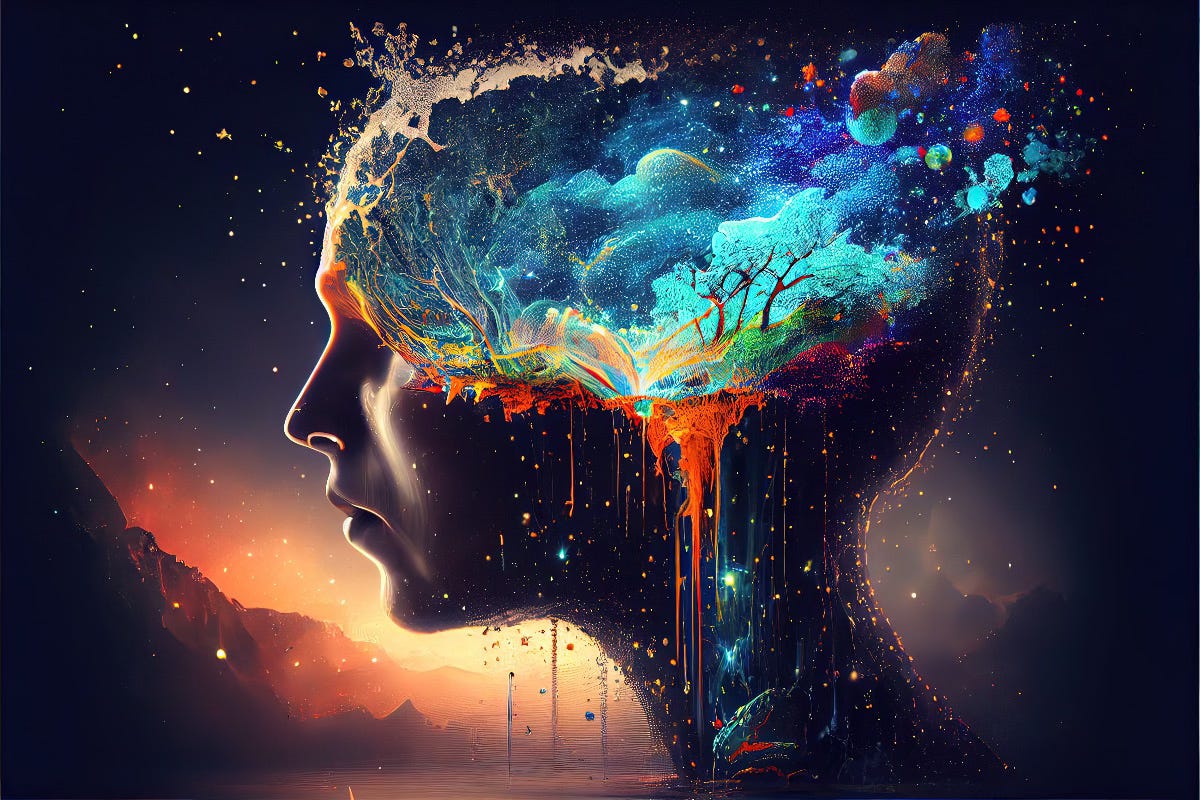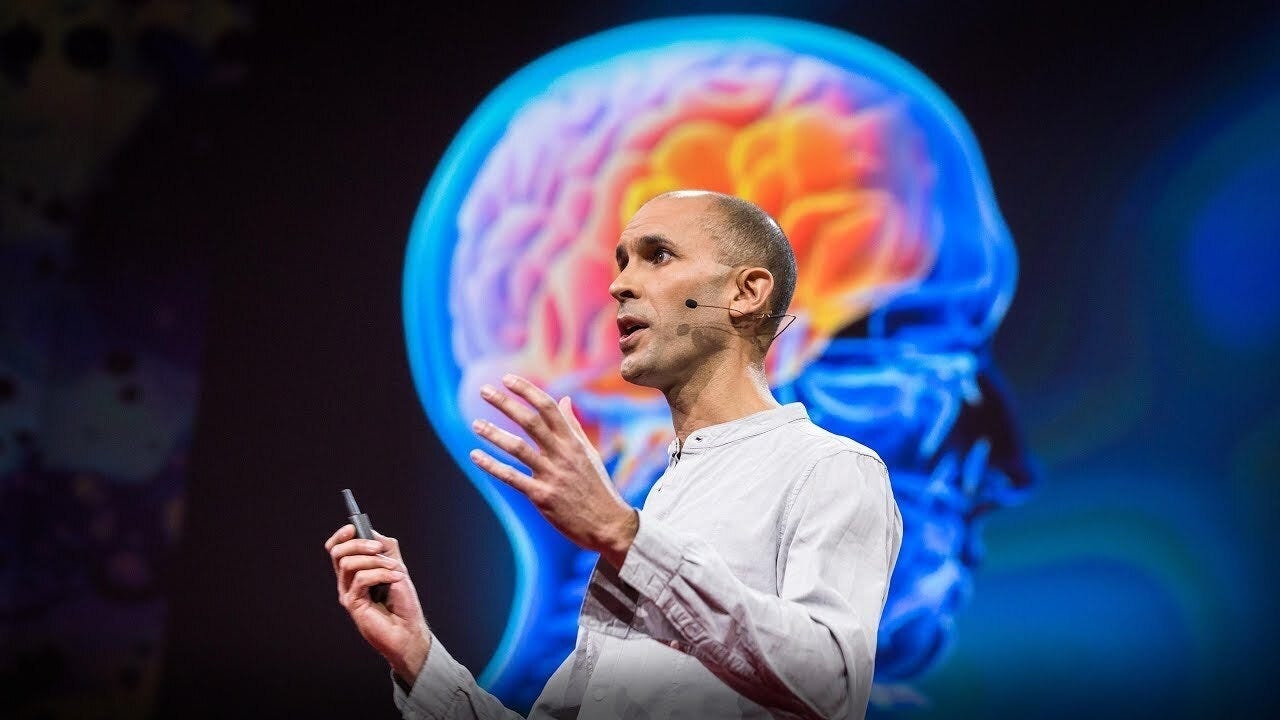Creating the World We Want
Trying to make a difference however we can
The Mindful Writer is all about making a difference with our words by really digging deep into what we’re writing and why. By using our words to create connection rather than division, to spread love.
Upgrade your subscription to get mindful writing courses full of craft development ideas, writing prompts, readings and exercises, to join the community and share your ideas, and start deepening your connection to your craft, yourself and everyone and everything you’re sharing this human experience with. 💙
I have been writing here for over a year and I thought it was about time I shared the “why” behind my mission to get us changing the stories we tell ourselves, and each other, about what being human is really all about. It’s a story of two parts — the personal part is where it starts and the story that was told to me about who I am and what this life is for, which created the damaging and limiting story I told myself about me. Read it here:
This is Part Two and the video element also features in a writing course I wrote in 2020, which is coming to The Mindful Writer for paid subscribers later this year.
There is so much more I wanted to include here but didn’t want to make this post too long. But I now have a whole of series of essay ideas inspired by what I have shared so far. So more coming soon! 💙
Creating the World We Want
"We don't just passively perceive the world, we actively generate it."
- Anil Seth
Once I had come to the realisation that the world, and my place within it, was probably not what I had thought it to be. That the ‘facts’ I’d been told and accepted weren’t necessarily so, I started to learn about the many different ideas there are about what this reality and human experience is.
Inspired initially by teachers such as Eckhart Tolle, Gregg Braden, Thich Nhat Hahn, Bruce Lipton, Pema Chödrön, Peter Russell and Yongey Mingyur Rinpoche, I researched the ideas that science and spirituality have about what our reality is and the role we play in creating it. Everything slowly changed for the better in my life.
First this change came from realising, I am not my thoughts they are simply experiences I am having; and second in understanding that, therefore, what I think can change the experience I am having. These realisations and understandings came from many different sources but there are two I am sharing here.
In 2016, when I found myself experiencing a lot of anguish and anxiety due to suppressed memories of unprocessed childhood sexual abuse resurfacing, and finally facing up to the fact that I couldn’t have a positive and loving relationship with my mother, or probably even any relationship at all, I read When Things Fall Apart: Heart Advice for Difficult Times by Pema Chödrön. It had a profound impact on me and in it she says:
“Every act counts. Every thought and emotion counts too. This is all the path we have. This is where we apply the teachings. This is where we come to understand why we meditate. We are only going to be here for a short while. Even if we live to be 108, our life will be too short for witnessing all its wonders. The dharma is each act, each thought, each word we speak. Are we at least willing to catch ourselves spinning off and to do that without embarrassment? Do we at least aspire to not consider ourselves a problem, but simply a pretty typical human being who could at that moment give him-or herself a break and stop being so predictable?
My experience is that this is how our thoughts begin to slow down. Magically, it seems that there’s a lot more space to breathe, a lot more room to dance, and a lot more happiness. The dharma can heal our wounds, our very ancient wounds that come not from original sin but from a misunderstanding so old that we can no longer see it. The instruction is to relate compassionately with where we find ourselves and to begin to see our predicament as workable. We are stuck in patterns of grasping and fixating which cause the same thoughts and reactions to occur again and again and again. In this way we project our world.”
Reading this really helped me to understand the role I was playing in creating these feelings of anguish and anxiety. They weren’t just happening to me. They weren’t out of my control. I could change them. And I could change how I reacted to them. Then, not long after, I watched a TED talk by Anil Seth, Professor of Cognitive and Computational Neuroscience at the University of Sussex, called ‘Your brain hallucinates your conscious reality’ and in it, he said:
How does consciousness happen? Somehow, within each of our brains, the combined activity of many billions of neurons, each one a tiny biological machine, is generating a conscious experience. And not just any conscious experience — your conscious experience right here and right now. How does this happen? Answering this question is so important because consciousness for each of us is all there is. Without it there's no world, there's no self, there's nothing at all.
Click the image if you’d like to watch the full video of his talk. It’s really good!
And I realised that if what he says is true, that without our consciousness there is no world, nothing at all, then the world we are experiencing must be the one we are collectively creating through our thoughts, which lead to our actions. And our thoughts are being influenced by the stories we tell, and are told. By our cultural conditioning, by our upbringing, by societal expectations, friends, families, what we read, watch and eat.
A 2019 article in The New York Times presented new evidence that TV viewing habits can affect our thinking, political preferences, and cognitive ability. In the UK, a 2023 survey by Ofcom revealed that 96% of the adults who participated watch the news every day and 73% of them get that news from the BBC. This means that the news programmers at the BBC, which is a Government regulated and funded organisation, are having a huge influence on what the UK population thinks and believes, and consequently acts upon, to create their reality.
I haven’t watched or read the news in many years but a quick look at the BBC News homepage on their website when writing this essay (2nd July) revealed stories of disaster, both natural and human-created, murder, terrorism, war crimes, and unchecked immigration if the Labour Party wins the election this week. Exactly the same kinds of stories that were on the news the last time I engaged with it. Exactly the same kind of stories that were on the news during my childhood when the TV was switched on as soon as my parents got up and stayed on until they went to bed.
I know that terrible things are happening but good things are too. Just as many and just as often. But the news is never full of these stories.
People that are consuming bad news stories on a daily basis are going to be filled with fear as their brains are constantly subjected to stress and perceive a state of crisis.
Research at the University of Minnesota reveals that people who are regularly afraid and anxious:
experience physical health problems as their immune systems are weakened;
can have impaired formation of long-term memories and cause damage to certain parts of the brain, which can make it even more difficult to regulate fear and leave them anxious most of the time; and
interrupt processes in the brain that allow them to regulate emotions, read non-verbal cues, reflect before acting, and act ethically, which impacts their thinking and decision-making in negative ways, leaving them susceptible to intense emotions and impulsive reactions.
So if we are constantly being told bad news, watching movies and reading stories where people are doing terrible things, and are portrayed as either purely good or purely evil, and we’re hearing negative ideas about ourselves, our neighbours, and all the other humans we share this planet with, we’re not at our best mentally or physically and the reality we create reflects that.
So this is why I believe it is so important to start changing the stories we tell. To bring nuance and depth to everyone in the novels, screenplays, short stories and essays we write. To not make anyone just a “baddie”, nor anyone just a “goodie”, and instead write all characters and situations with compassion and understanding that everyone is just doing the best they can with where they’re at on their path. And that if instead of bombarding everyone with stories of terror and division we share ones of ways to find joy and unity, we can do something to help us all have a happier, healthier journey along that path.
Surely that has to be a good thing.
I’m not naive, I don’t believe we can make everything better overnight, or even over the rest of my lifetime. But I believe we have to try to make every bit of difference we can while we’re here. Don’t you?
With love
Thank you for reading The Mindful Writer. If you find value in my work but can’t commit to a paid subscription, please show your appreciation by a like, a comment, a share, or by leaving me a tip. They all make a real difference. Thank you! 💙
Want to work more closely with me to develop your craft?
As well as the courses you can get with the paid subscription here at The Mindful Writer, there are lots of opportunities to work with me to bring a more mindful approach to your writing.
You can join my Mindful Novel course starting in October (just 2 spaces remaining)
And you can come on a writing retreat with me in November.










I can feel my brain boggling!
I stopped listening to the news during 2016-2020 administration in the US because I couldn't handle the constant bad news. It was too much on my nervous system. I find when really important things happen it gets filtered to me through other means, then I can investigate when I want to know more from sources I trust. It feels more empowering, that I am not a victim of the news cycle but I can control what I am exposed to.